كلمات لقاسم امين
(0)
By: Ramy Atta
Genre: Literary Criticism
Publisher: Higher Council for Culture
Year: 2009
كتاب دراسة وتعليق رامي عطا صديق
Further Reading
Related Articles
كلمات لقاسم امين
By: Editor
By: Editor
Qassim Amin: The Liberation of Women
By: Editor
By: Editor
Upcoming Events

Arabia Felix - Alarabia Alsaida in Bayt Yakan
April 15, 2025
Arabia Felix by Thorkild Hansen, and translated by...

A writer, a vision, a journey: a conversation with Professor Ilan Pappe
March 15, 2025
This event took place on 15 March, 2025 . You may...

مسافر يبحث عن ماء
February 17, 2025
تقيم نقابة اتحاد كتاب مصرشعبة أدب الرحلات تحت رعاي...

Online discussion of The Vegetarian by Han Kang Nobel Prize winner 2024
November 08, 2024
This discussion of Han Kang’s The Vegetarian...
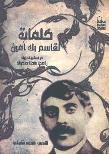
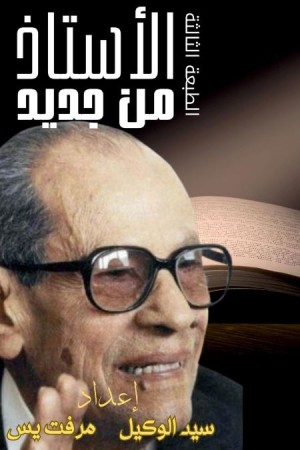
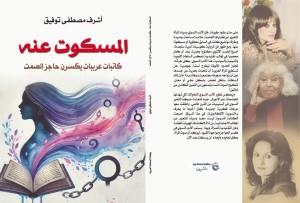
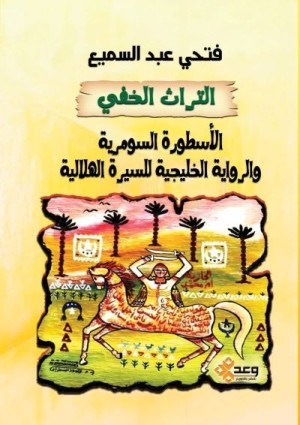
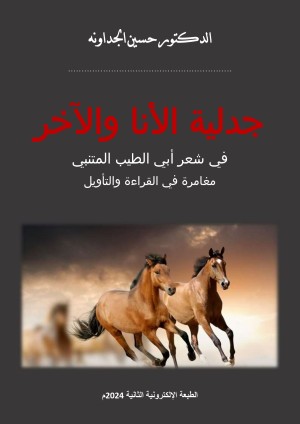
Admin - 5 years ago
من ارشيف تعليقات القراء 2011
name: Khaled Mohamed
يبرز لنا هذا الكتاب أن المفكر العميق قاسم أمين عندما طالب بتحرير المرأة لم يعتبر ذلك قضية منفصلة بل نظر اليها بوصفها أحد مكونات عملية تطوير شاملة يتطلبها المجتمع المصري وباقي المجتمعات العربية، فقضية
الحضارة هي قضية متداخلة لا يمكن أن تتحقق اذا غابت أحد مكوناتها مثل حقوق المرأة وحقوق الانسان وحرية التعبير وحرية العقيدة الخ...
كما أن لا يمكن لمجتمع أن يتقدم ان لم يتبع المنهج العلمي التحليلي في كافة قضاياه.
شكرا لقاسم أمين وشكرا للمنتدى هذا الاختيار الممتع.
Name: Ali Tal
The "Sayings" of Qassim Amin with a sensible commentary by Rami Atta Sedik ornately opens the tenth year of the Arab World "Readers Club Discussion". The motivating "Sayings" are like glittering shards reflecting the good intentions of one of the 19th century aristocratic thinkers of Egypt. At a time of turbulence, the deafening call for independence from the British rule went loud and clear from upper to lower Egypt. Men like Amin held the torch of freedom. Alas! the revolution failed. The not predominantly directional "Sayings" were perhaps jottings written beside his other work to fit in a later literary work that was under deliberation but his busy day and short life prevented him from completing. It is extraordinary that he had found time to write at all. By the end of the 19th century Istanbul was finally laid to her deathbed and the Ottoman world fell into great social and political turmoil that the luminaries of the time thought it obvious that great intellectual and national changes were immediate, expecting to produce a new more modern and liberal society. At the birth of twentieth century the Arabic enlighteners sought their intellectual inspirations from further afield to bring in a new age of illumination. Like many of his compatriots, when Amin found himself in Paris he felt like being in a dream reality. Without any deep look into the dark side of France, straightaway Amin fell in love with Paris and naively wished that everything he saw there was transported to his homeland. Touched to the quick by the free and bright French intelligentsia, Qassim Amin felt shy of his old mediocre tongue and thought that the French language was superior to Arabic language and therefore should replace it. In the superficiality of the lords and ladies of Cairo, French was actually spoken in preference to Arabic. However despite this ostentation, Arabic patriotism finally won the day against the brutal bulldozing British imperialism. Abandoning their usual hand-wringing in time of crisis, the calling for their honourable nationalism was heard by the people. It was at such an active time that Amin lived and fought for his country and its people. The style of the book as a whole is endearing rather than ingenious. Sodden in the blessed waters of the Nile, Amin's "Sayings" are like a breath of a child blowing air bubbles from under the water, a gentle quivering movement signalling a bait is present. With sagacity and guile, in places you could see Amin crouched on his knees, speaking his words in whispers with an extreme aversion to human trespassers on his habitat. Thus seeing the water of the Nile through the eyes of some hard working fellah in the windless dark, the river's dim ebony sheen must have been at once both sinister and promising. Somewhere out there, deep down, lay Leviathan, shy but powerful awaiting any antagonist.
Name: د. فاطمة فوزي
يحسب للباحث ؛ أحياؤه لكتاب لم نكن نعلم به من جهة ، كما يحسب له رجوعه لأرشيف الصحف ، وعرض بعض الآراء التي ساقتها الصحف في معرض وفاة " قاسم أمين " ؛ وإن كنت منيت نفسي من البداية بتحليل مضمون لمحتوى كتاب " كلمات " لما يتضمنه من معاني عميقة حول اللغة مثلاً ، والحرية والأخلاق وغيرها من الموضوعات الجديرة بتصنيفها ، وتحليلها في ضوء الأراء التي سشيقت في حينها عن نفس الموضوعات مع اطيب الأمنيات بالتوفيق للباحث
Name: Hamid
Thanks to the writer (Rami Atta Sedik) and those who selected the book "The Sayings of Qassim Amin". It was a successful choice at a time where the Egyptians paid respect to the 100th anniversary as Qassim Amin was laid to rest. It is clear that Qassim Amin diagnosed all acute and chronic social diseases including those which are ascribed to be Islamic in origin. His rivals respected him as well as friends. The sayings are very critical to all rotten aspects of the Egyptian society at that time and which are even growing worse by now. No body stabbed him or tried to kill him. In my belief the book should be distributed to all students in schools, al Azhar and even at Universities. It teaches Egyptians how to think and express themselves without fear (e.g. Mahfouz stabbing and The Bombing of the Two Saints Church in Alexandria).
From a Frustrated person who has no hope for improvement